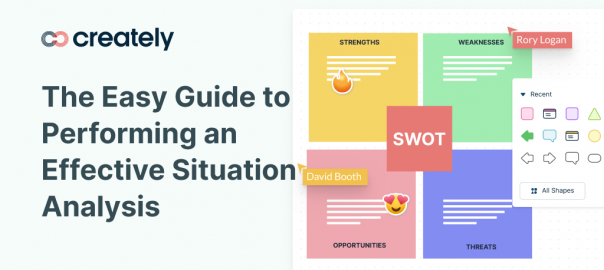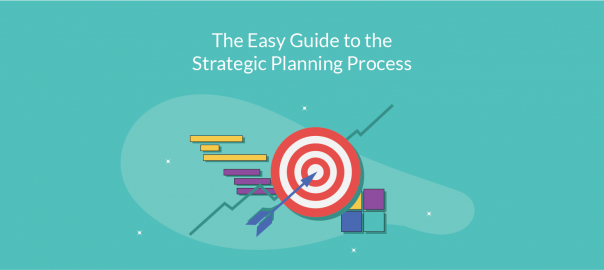Critical path method is one of the frequently used techniques in project planning. A typical project has many tasks involving lots of different people so project managers have a hard time keeping track of things. It is far too easy for certain activities to fall behind and get lost in the sea of endless jobs. These forgotten tasks and errors in planning can severely affect the timescale of the whole project. A late project will cost money and lead to unhappy customers and bosses. Critical path method in project management helps managers figure out two very important things. How long it will take to complete the project and what are the critical tasks that must be completed before starting other dependent tasks.
The best way for project managers to avoid poor planning is to incorporate the critical path method in their diagrams. Having this as a diagram makes it easy to visualize the important tasks of a project. This is really helpful for managers and makes it easier for the project team to visualize and plan their work accordingly. The main aim is to produce a visual of the entire project broken down into smaller activities which are vital to the completion of the entire project.
All of the activities which are added to the network diagram are the ones which have to be completed on time. By adding them on to a diagram it is possible to see how long each section will take. This is essential when it comes to predicting the timescale of the project. The benefits of applying each of the set time critical and essential activities to a diagram include:
- Predicting the time each activity will take and offering a timescale to the client
- Seeing how each section is important to the progress of the rest of the plan
- Assigning the right team and department to their corresponding tasks
How to find the Critical Path
It is essential when planning any project to calculate how long each section will take. This helps to establish the start date of any activities which cannot start until the one which precedes it has been completed. The calculations also determine the latest date that the activity needs to be completed by in order for the next part to begin. Everything is closely tied together and without a diagram, it can be very easy for everyone to lose sight of their goals. Perhaps, more importantly, the diagram helps individuals to see the effects down the line if they do not stick to the plan at hand.
The network diagrams can be very helpful in this type of time management. Once you have all of the necessary activities worked out and added to the diagram you can use the critical path method in project management to find the optimal way to finish those tasks.
Perhaps the simplest way of using the critical path method in project management, once you have the earliest and latest start days, is to work backward. Obviously the last activity is on the critical path as without this section the project will not be completed. You then work backward throughout each of the activities to locate the line of activities which do not have any float days available to them. However, it is much easier to create a table indicating the activity, preceding task and time duration and draw the network diagram based on that.
Below is a network diagram in project management drawn using the above table.

The network diagram with the critical path highlighted (AON Diagram Template)
Critical Path Method Helps to Identify Your Days of Float
The float is worked out by how long the activity takes to complete and how many days are available between the start date of the activity and the one which follows directly afterward. So if a task will take three days to complete and only has three days available from the start to the following activity, this means that there is no float available, therefore it is a critical task.
On the other hand, float days would be available if you have a task which only took one day to complete but there are four days until the start of the following task. Therefore this task is not time critical and it can be slightly delayed if necessary.
The critical path is the activities which have to be completed on time, and if they are not the whole of the project is put in jeopardy. When you are designing your diagram it is a good idea to highlight the vital sections of the entire plan to show that they are of utmost importance to the successful completion of the project.
Using Software to do Critical Path Analysis
Drawing nodes, tables and arrows can be a tricky task. Especially when it comes to connecting nodes with arrows and giving direction to the arrows. In such situations, you can use a diagram software like Creately to draw diagrams. It provides an intuitive interface and has some network diagram templates to get you started quickly.
The Critical path method in project management helps to identify days where it is possible to spend extra time on non-critical parts of the entire project too. So if there are delays in these areas it is still possible to finish on time without anyone else being affected.
Work Together to Finish On Time Based on Your Plan
A complex project has many tasks and estimation has to be done by different people. In such cases, it is helpful to use the critical path method in collaboration with your team members. Creately is a web-based application that supports collaboration. You can share your diagram with your team members and let them modify their estimates and dependencies. Once you have that input you can use that data and to the critical path analysis.
References
Critical Path Method Scheduling ( YouTube Video )






in this network work diagram, no activity start with E so how is it possible to become a critical path as shown as Highlighted
I do not see E as a predecessor to H in the table. Not sure how it is in the network
Neither do I…..I have a hard time finding practice network schedule diagrams to use while studying for the PMP. Most of them seem to have incorrect information. Anyone with suggested sites – I’m all ears!
I often see the CPM in triangular shape but what I have seen here is a rectangular one. So it’s a bit difficult for me to understand. Also, What is rationale behind calculating the critical path backward?
Again, I would like to know in the case where two events can occur together harmoniously but there is a critical event between the two; for instance,activity A can be done simultaneously with activity C but activity B must be completed before C starts, how do you draw the critical path diagram and the Gantt Chart?
Hi there , I am going to write a test from Management and I have some tricky questions . I need to know a good answer . So please help 🙂 .
1.) What is the main purpose of Gantt chart and Source graph in CPM network analysis ?
2.) How we can construct the CPM network graph and how we can determine lenght of critical path
Thank you .
Nice, well put. Was a pleasure to read… definitely cleared this stuff up for me
I LOVE THIS POST….IT CLEARS MY DOUBT
Nice method and illustrated very well. I got the required information from here. So thank you so much for sharing your knowledge.
Nice infographics and article about critical path method
how to work the following critical path method: Task a100, a200,a300,a400,a500 preceding activity start,a100,a200,a100,a400 duration 2,3,2,4,5 and what could be the gantt chart for this CPM
critical path method helps identify the floats time and days between projects hence it is of great importance to manager to handle their daily responsibility and ensure efficient and timely productions and delivery of products to customers really it reduce complaints between departments
impressed
關於 Gantt / PERT 圖,如果使用一般的繪圖軟體,雖然在繪製上很有彈性,但是必須要自己手動計算與判斷 Critical Path,使用不帶有 PERT 功能的 Gantt Chart Project Management 也會有同樣的困擾。
因此,先了解你需要什麼,再學習工具~
About Gantt/PERT, for most diagramming software, you have the freedom on illustrating but need to take care of the Critical Path on your own. BTW, most Gantt-based Project Management Software doesn’t provide the ability to highlight Critical Path.